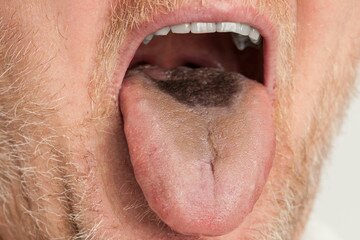Homemade herbal oil for hair growth has been on the rise since the adoption and acceptance of herb use among the world populace. Every nation has plants, which when infused with oils, bring out the different qualities they possess. However, for a long time, the superiority of the herbs we have around us has been relegated for the toxicity of commercial synthetic products that do more damage than good.
[ninja_tables id="66705"]
They say the hair is the crown of the body. Therefore, one must protect their crown with all diligence, else, their royalty is lost. In order to preserve the elasticity and shiny outlook of your hair, you need to use the right products – that is the ones that are safe and do not cause your hair to break or weaken over time. You also need to have and follow the right diet.
In this article we will talk about hair growth – the process, the things that influence hair growth, and the best homemade herbal oil for hair growth. You can make these oils by yourself, or purchase the commercially available ones that contain the herbal ingredients we will be highlighting.
Hair Growth – The Process
The mass of hair on one’s head grows in a three-way process. Although the body has hairs in most parts, we will have our focus on head hair. The hair on the head has the highest mass on the human body and is the most groomed hair on any human body part. It is the hair we often cream, oil, and even brush or comb.
The process of its growth is divided into three stages; the Anagen phase – also called the growing phase, the Catagen Phase – also called the transitional phase, and the Telogen phase – the resting phase. These phases can take years to complete, and they depend on certain factors to help them produce healthy, long, and shiny hair.
The Anagen phase of hair growth begins when the hair roots of the follicle beneath the dermal layer of the scalp produces strands of hair and they begin to approach the outer environment of the scalp. Usually, during this phase of hair growth, a strand of hair can grow at 1 cm per month. Its growth rate can be faster or slower, depending on some factors. However, the longer the hair remains in this stage, the longer the hair will be. The hair is supplied with nutrients and essential oil by the blood flow in the dermal layer and the hair follicles.
The Catagen phase is characterized by the cessation of growth in the length of hair. In this stage, the nutrient supply to hair strands is cut off when the papilla detaches itself from hair growth, causing the follicle to shrink. This phase lasts about two weeks, during which the follicle renews itself and helps to further push the hair strands upwards. This phase affects only about one percent of the mass of hair one one’s head at any point.
The Telogen phase is also called the resting phase because it is when the follicle is dormant, and it affects about fifteen percent of all an individual’s hair mass at any point in time. The epidermal cells of the follicle keep growing, making the hair strands continue their life but receiving very little nutrient from the body. The follicle resumes growth and softens the point of anchor of the hair strands, causing them to break and fall off. This is why this phase is also called the shedding phase.
All these processes, including the loss of hair strands are normal, as they give way from new and healthy hair growth. However, there is a problem when the hair strands fall off and there’s no replacement, or the replacement is growing agonizingly slowly.
Factors that Affect Hair Growth
We see many people with full luxuriant hair and wonder why we do not have as much thick hair mass as they do. In most cases, they owe their good hair to genetics. However, they support the good hair foundation with good diet and hair care products.
Some of the factors that affect hair growth, apart from genetics, include:
Diet
Eat more protein! That’s a fairly common statement when it comes to beneficial diet for the human body. However, it is beneficial for your hair growth if you consume quality proteins as your hair is made of keratin, a protein.
Your hair will suffer a great deal if you’re on a restrictive diet, it deprives it of many micro nutrients, such as vitamins and minerals, which are essential for the growth and shiny appearance of your hair.
Shampooing
While it is good practice to wash your hair, removing excess oil, and encouraging the scalp to be moist with new sebum, it can be detrimental to your scalp. Constant shampooing can leave your scalp dry, making the dermal layer stop producing as much essential oils as it should. This is particularly common when you use shampoos that contain ingredients that irritate the scalp. Instead, opt for Apple Cider Vinegar shampoos or any other that contain organic material.
Your hair begins to break before they get to the shedding phase, and new growths take longer to emerge.
Hydration
Yes, you drink a lot of water, that’s good. In fact, it is very beneficial to your scalp, and consequently, to your hair. However, your hair will also benefit from good conditioning and hydration, directly to your scalp. It not only gives your head a soothing relief from the heat it traps in there, it helps your scalp have some breathing space since some extraneous oils are removed, allowing air to easily percolate.
It is better to hydrate your scalp with cool water as warm water may cause dehydration.
Hair Treatment
These days, we subject our hair to different kinds of treatment, most of which are detrimental to the hair and scalp. Avoid the frequent use of dyes on your hair, it weakens the protein in the hair strands and subjects the scalp to withstanding adverse chemicals.
Homemade Herbal Oil for Hair Growth
For better growth of hair and improved strength and outlook of your hair, you should use some natural hair oils these hair oils comprise of herbs that give essential nutrients to your hair and the nutrients are carried in oils that are proven to be of benefit to the scalp, and helps the nutrients get to the dermal layer of the scalp, introducing the nutrients to the epidermal cells.
Hibiscus Flower and Coconut Oil
Hibiscus flower has been used in ancient times, popularly in Asian countries, such as India, to slow the greying of hair in older people. It is also effective in stopping hair loss, treating dandruff, and preventing split ends. It helps to add volume to the hair and makes it a thicker mass. It is rich in essential vitamins, such as vitamins A and C.
It can be combined with different oils that serve as carrier oils. However, it is more preferred that coconut oil is used since it is commonly used to promote scalp and skin health on its own.
As an effective herbal oil for hair growth, you should use it sparingly.
Olive oil, Camphor, and Castor Oil
If you have issues with your scalp, such as dry and itchy scalp, you need an herb that can help soothe that itching and at the same time, moisturize your scalp. Let’s also not forget the provision of nutrients to the root hairs, thereby strengthening each hair strand in their different growth stages.
Camphor has antifungal and antibacterial properties, protecting the scalp from dandruff and other skin conditions. Its oil can be extracted from its tree bark by steaming, and mixed with other carrier oils such as jojoba, olive oil, or castor oil.
This herbal oil for hair growth has more beneficial medicinal properties than any synthetic hair care product out there.
Onion and Lavender Oil
Lavender oil is an excellent insect repellent. Combined with onions, which can have a serious pungent quality, the combination is effective in protecting the scalp against lice. Lavender oil is rich in antioxidants and helps to moisturize the scalp, and aid hair growth.
Onions is rich in sulphur, a substance that helps to promote hair growth and consequently, improves hair thickness of its users. A combination of the nutrients in onions and the anti-inflammatory and antioxidant properties of lavender oil, this herbal oil for hair growth is more than effective.
Neem and Almond Oil
Neem oil is effective in moisturizing the scalp and providing its regenerative properties to the hair follicles, thereby helping in the new hair growth process. Neem oil is obtained from neem leaves by steaming them.
Almond oil, which serves as the carrier oil in this homemade herbal oil for hair growth is rich in antioxidants, vitamins, and minerals, which are essential for hair growth. It does not just carry the nutrients in the neem oil or leaves to the follicles, it provides its own nutrients.
A combination of these oils and herb leads to a ore luxuriant hair mass, healthy follicle, and better anagen phase of hair growth phase.
Curry Leaves and Coconut Oil
Coconut oil is a common oil used for its benefit on the skin. It is effective in shielding the skin against harmful UV rays from the sun, it also provides some vitamins to the skin.
Curry leaves have many importance in the world today, ranging from medicinal to culinary. However, our focus is on the hair. It is rich in vitamin B, which is important in producing melanin in the follicles of the hair, thereby discouraging quick greying of hair. It also has antioxidants which helps to relieve oxidative stress, thereby promoting hair growth, preventing hair loss and helps in treating dandruff.
It is an herbal oil for hair growth that can be easily made at home. You can choose to soak the leaves in coconut oil or extract the oils in the leaves and mix with coconut oil
Conclusion
Herbal oils for hair growth have been increasing in use due to their effectiveness in protecting the hair and scalp form dandruff and lice. People have also realized that they are safer and gentler on the scalp, therefore they are now more used.
However, herbal oils for hair growth can be a little pricey, therefore you might want to make yours at home for a lesser price and better infusion.








